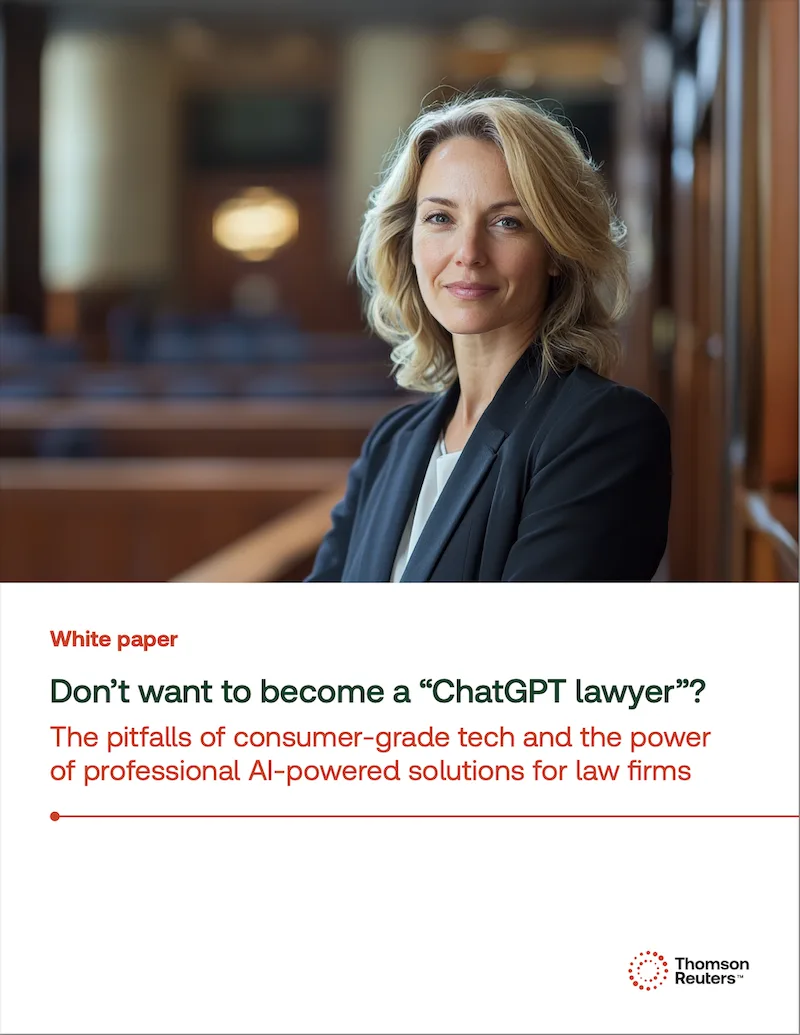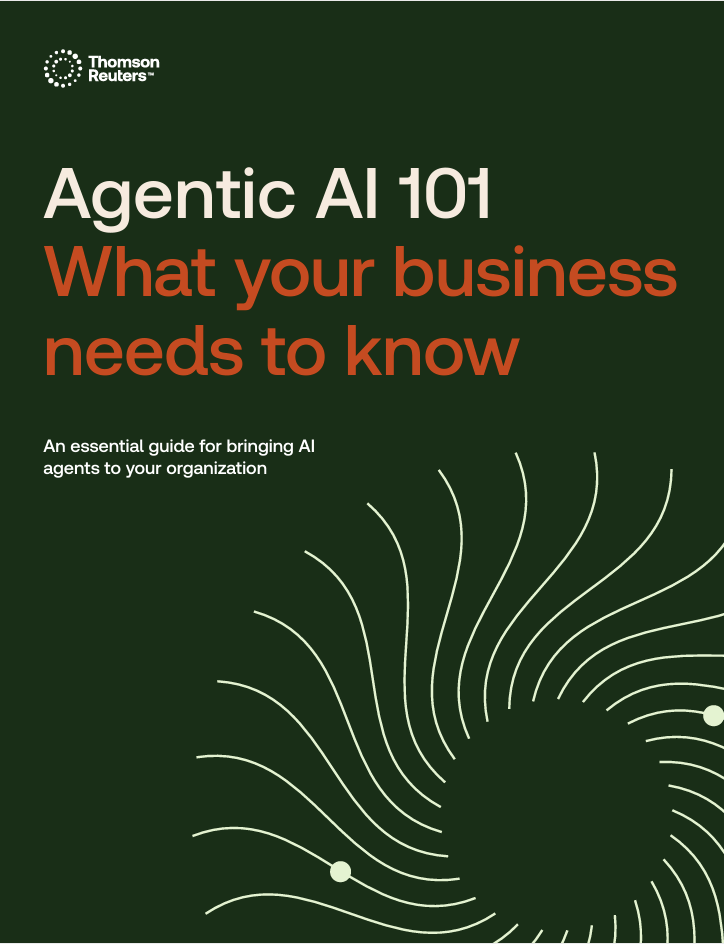When powered by professional-grade tools, agentic AI enables lawyers to complete complex workflows with enhanced reasoning, planning, and adaptability
For professionals in any industry, doing good work relies both on having the right skills and expertise, and on using the right tools for the task at hand. As legal professionals embrace artificial intelligence (AI) tools to meet their needs by augmenting human capabilities, they need to ensure they’re using professional-grade AI — AI specifically designed for use by the legal market.
AI is evolving rapidly, with generative AI (GenAI) — the technology behind ChatGPT — changing the landscape in late 2022, followed by the latest development coming to the fore: agentic AI. This technology goes beyond automating tasks, answering questions, and even generating text. It is AI acting as an agent that can reason, plan, adapt, and act to effectively complete workflows, task by task.
Jump to ↓
What does professional-grade AI mean?
Taking the next step with agentic AI
Delivering agentic AI in a professional-grade setting
What does professional-grade AI mean?
Unlike commercial-grade AI tools like ChatGPT, professional-grade AI solutions meet lawyers’ legal, ethical, and operational standards. They allow lawyers to work accurately, securely, and with full accountability.
As a minimum, that means professional-grade AI:
- Is grounded in up-to-date, reliable, legal-specific information. High-performance large language models (or LLMs, which are the power behind today’s AI solutions) must base their outputs only on content and data from high-quality legal sources. Access to up-to-date legal databases and practical guidance is vital.
- Is designed to make validation easy. Every output must link directly to its source so users can quickly and easily review and verify the results with a full audit trail. Providing reliable citations to legal sources is essential for showing that results are relevant and correct — which isn’t always the case with some general-purpose AI tools.
- Has a low tolerance for error. Accuracy is critical in legal work, so AI solutions must be built for precision. Robust guardrails and checking systems must be put in place to minimize the risk of error. Plus, rigorous testing should be regularly undertaken by both technical specialists and legal experts to ensure optimal system performance.
- Is built by leaders in professional AI. AI might seem like a relatively new concept, but the best solutions have been developed over decades by vendors who have pioneered how AI can be used responsibly in professional settings.
- Is secure by design. Customer data should never be used to train third-party models; it should be encrypted and processed on private infrastructure, and not be seen, used or retained by a vendor’s partners.
Taking the next step with agentic AI
Until now, GenAI has acted as a passive assistant that carries out specific tasks step-by-step in response to a series of prompts. Agentic AI takes this further, mapping out how to achieve broad objectives, not simply complete tasks. It can create a process under human guidance, then follow it, executing multi-stage workflows from beginning to end, correcting and adjusting as it goes.
This means legal professionals can delegate more challenging tasks. For example, the agent can perform deeper research by reading cases, rules, regulations, and statutes, then conduct further research and analysis around the subject based on its initial findings. It can also help manage complex tasks, including use cases such as:
- Litigation case intake
- Document summarization
- Creating key date timelines
- Researching precedents
Delivering agentic AI in a professional-grade setting
At Thomson Reuters, our AI teams partner directly with subject matter specialists to build AI tools that work in the way lawyers work, and ensure the AI is properly trained and guided for maximum reliability and effectiveness. CoCounsel Legal — powered by CoCounsel, our industry-leading professional-grade AI legal assistant — combines trusted professional data with expert human oversight and best-in-class security, so its outputs are actionable and accountable.
Importantly, CoCounsel Legal is an enabler of law firm-specific workflows. It uses extensive, high-quality legal content, including legal databases, expert knowledge, and practical guidance. And because it integrates directly with platforms like Westlaw Precision, Practical Law, and Microsoft 365, as well as customers’ data management platforms, it facilitates seamless orchestration of tasks across every stage of the workflow.
While CoCounsel Legal has a high baseline of AI performance, law firms can customize it for their unique needs. They can add their own custom workflows and instructions to ensure it works well for a wide range of tasks.
CoCounsel Legal is the result of decades of research and development around professional-grade AI and how it can best be applied in legal workflows. This longstanding investment has provided many valuable lessons and insights that have shaped our approach over time. After extensive pre-market testing, the process of product improvement and innovation is ongoing, with a clear roadmap for further advances.
Paving the way forward
Professional-grade agentic AI systems are the future, and here at Thomson Reuters, we’ve been pioneering these just as we’ve pioneered professional-grade AI. By balancing innovation with our deep understanding of the legal sector and rigorous product testing, CoCounsel Legal offers the industry exciting opportunities to enhance and accelerate their workflows in a reliable and trustworthy manner. Lawyers can produce higher-quality work faster, focusing their intellect and expertise on better serving their clients.
More than 20,000 law firms and legal departments are already using CoCounsel, as is the entire U.S. federal court system. Request a free demo to increase your efficiency today.

CoCounsel Legal
Work smarter with CoCounsel, seamlessly integrated with Westlaw, Practical Law, Microsoft 365, and DMS partners
Go professional-grade AI ↗
White paper
The pitfalls of consumer-grade tech and the power of professional AI-powered solutions for law firms
View white paper ↗










